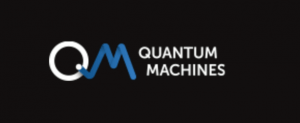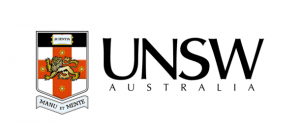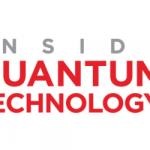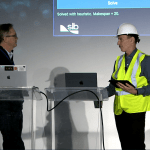Quantum News Briefs January 23: Japan’s first domestically produced quantum computer; Quantum Machines Co-Founder/CEO says countries cannot afford to slow down investment in quantum computing even in face of economic uncertainty; Quantum-related agenda at World Economic Forum includes Blueprint plus initiatives to tackle “quantum divide” + MORE

Quantum News Briefs January 23 begins with news of “Japan’s first domestically produced quantum computer” and moves to interview with Israel’s Quantum Machines CEO/Co-Founder who believes “countries cannot afford to slow down investment in quantum computing even in face of economic uncertainty” followed by NextGov’s report on quantum technology initiatives at the The World Economic Forum + MORE from Australia’s UNSW “Demon”.
Japan’s first domestically produced quantum computer
Wakoshi, Saitama Prefecture, is home to the RIKEN Center for Quantum Computing (RQC). It is here that development of Japan’s first domestically-produced quantum computer is moving forward. Yasunobu Nakamura, director of the RQC, is leading the development and aims for completion at the end of March 2023. Quantum News Briefs summarizes the Japan Forward article below.
They are using the superconducting method. This is a mainstream method for creating quantum computers. It is also being adopted by large overseas companies like Google and IBM. In 1999, when Nakamura was working at NEC, he created the world’s first superconducting qubit. This is now the heart of the technology.
The early development of Japan’s domestically-produced machine is essential in order to compete with the rest of the world in the battle for supremacy in science and technology according to this article.
The first machine will be a testbed for research and development of related technologies. Meanwhile, it will bring Japan close to the actual full-fledged quantum computer. Dr Nakamura said, “We’ve been requested to create a domestic computer that everyone can use as soon as possible. I think our collaborators will be the first to use it, but we would like to expand its application.”
At RQC, in addition to superconductivity, research into creating a quantum computer using photons and silicon is progressing. There are not many research institutes, even overseas, that have such a diverse selection of research areas.
One of Japan’s specialties that can be expected to make a comeback is the silicon method. The qubits will be created using semiconductor technology. This project is being led by Seigo Tarucha, who leads research at both RQC and the RIKEN Center for Emergent Matter Science.
Expectations are rising for the progress of the Japanese quantum computer toward the realization of a quantum nation. Click here to read the Japan Forward article in-entirety.
Quantum Machines Co-Founder/CEO says countries cannot afford to slow down investment in quantum computing even in face of economic uncertainty
 Ron Miller from TechCrunch+ recently interviewed Israeli startup Quantum Machines’ co-founder and CEO Itamar Sivan. Quantum News Briefs summarizes their conversation below.
Ron Miller from TechCrunch+ recently interviewed Israeli startup Quantum Machines’ co-founder and CEO Itamar Sivan. Quantum News Briefs summarizes their conversation below.
Miller points out that conventional wisdom suggests that a Series B company should be hunkering down right now, cutting costs, weathering the storm, but Israeli startup Quantum Machines is defying this approach.
Sivan pointed out, “It’s funny, I met with one of our investors a couple of days ago, and they said, ours might actually be the only company they met recently that was on target for 2022,” Sivan told TechCrunch. The company actually doubled its revenue last year and is expected to do so again in 2023. While he wouldn’t share an exact number, he indicated that it reached at least $10 million last year.
External economic conditions are having little impact on his startup, especially as countries around the world jockey for position around building quantum computers. “I believe that quantum computing in this regard is a safer field to be in in this environment because countries cannot afford to lose this race. So if a country slows down for a couple of years [because of economic concerns]…this might be an irreversible process,” he said.
The startup, which had 60 employees when speaking with TechCrunch in September 2021, has grown to over 140 now and is continuing to hire. Last year’s $20 million investment infusion came from a variety of unnamed institutional investors, along with existing investors Qualcomm Ventures, Red Dot Capital Partners, Samsung NEXT, Meron Capital and Alumni Ventures. The company has now raised $100 million. Click here to read TechCrunch+ interview in-entirety.
Quantum-related agenda at World Economic Forum includes Blueprint plus initiatives to tackle “quantum divide”
 The always excellent Alexandra Kelly of the NextGov explained in her recent article that “The global race to spearhead innovation in quantum technology research and development hit the World Economic Forum held in Davos, Switzerland. Quantum News Briefs summarizes her article below.World Economic officials announced the development of a National Quantum Blueprint to serve as guidance for all nations looking to invest in their burgeoning quantum technology ecosystems.
The always excellent Alexandra Kelly of the NextGov explained in her recent article that “The global race to spearhead innovation in quantum technology research and development hit the World Economic Forum held in Davos, Switzerland. Quantum News Briefs summarizes her article below.World Economic officials announced the development of a National Quantum Blueprint to serve as guidance for all nations looking to invest in their burgeoning quantum technology ecosystems.
Formally announced on Wednesday, Jan. 18, the blueprint will be largely informed by the WEF’s Quantum Computing Governance Principles released one year ago. It takes into account the various fields quantum technology—specifically computing—stands to impact, and how nations can better invest and prepare for its applications.
While the quantum-related agenda at the WEF emphasizes the wide-ranging risks to data privacy with the advent of quantum computing, other technologies like quantum simulation and quantum sensing were also discussed as promising new systems that can positively impact industries like pharmacology, industrial chemistry and imaging technologies.
In addition to spotlighting industry sectors quantum technology stands to impact, the WEF agenda aims to proactively tackle the burgeoning “quantum divide” forming between countries with more advanced quantum research investment programs and countries that have yet to dispense the same level of funding. Click here to read NextGov coverage of quantum at WEF in-entirety.
UNSW’s Digital “Demon” a surprisingly simple method that improves quantum computing accuracy by 20X
 Researchers at UNSW Sydney have created a new technique for resetting quantum computers with a high level of accuracy. Quantum News Briefs summarizes from SciNewsDaily January 19 announcement.
Researchers at UNSW Sydney have created a new technique for resetting quantum computers with a high level of accuracy. Quantum News Briefs summarizes from SciNewsDaily January 19 announcement.
This process, known as preparing a quantum bit in the ‘0’ state, is crucial for accurate quantum computations. The method is based on the principle of “Maxwell’s demon,” a hypothetical creature that can separate hot and cold molecules by observing their speed. This innovative solution is simple yet effective in ensuring the reliability of quantum computations.
“Here we used a much more modern ‘demon’ – a fast digital voltmeter – to watch the temperature of an electron drawn at random from a warm pool of electrons. In doing so, we made it much colder than the pool it came from, and this corresponds to a high certainty of it being in the ‘0’ computational state,” says Professor Andrea Morello of UNSW, who led the team.
“Quantum computers are only useful if they can reach the final result with a very low probability of errors. And one can have near-perfect quantum operations, but if the calculation started from the wrong code, the final result would be wrong too. Our digital ‘Maxwell’s demon’ gives us a 20x improvement in how accurately we can set the start of the computation.” Click here to read the entire announcement.
Sandra K. Helsel, Ph.D. has been researching and reporting on frontier technologies since 1990. She has her Ph.D. from the University of Arizona.





















